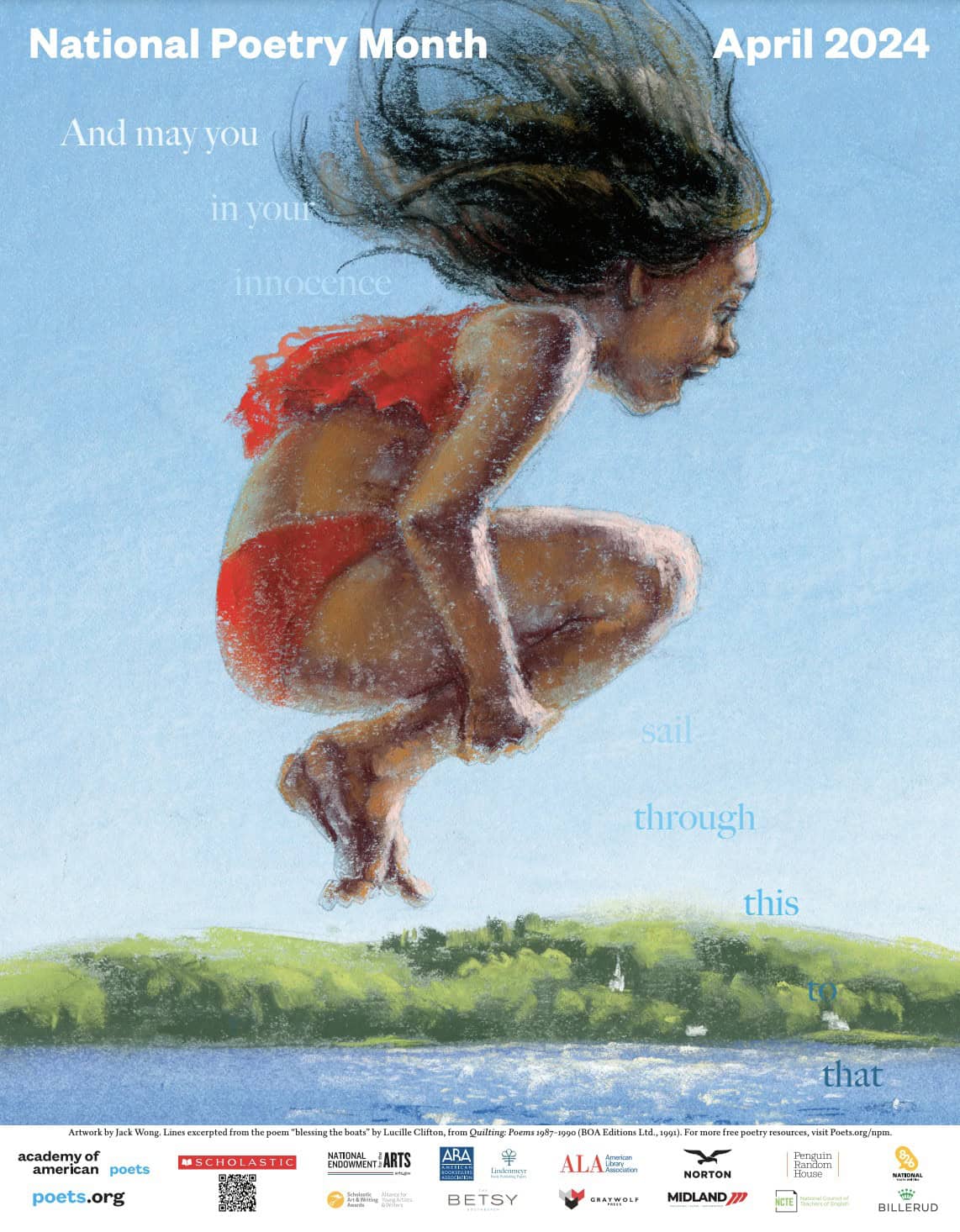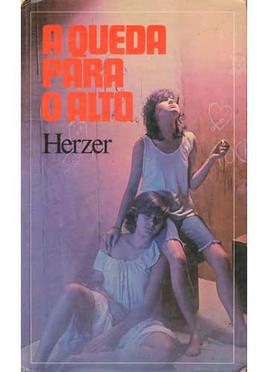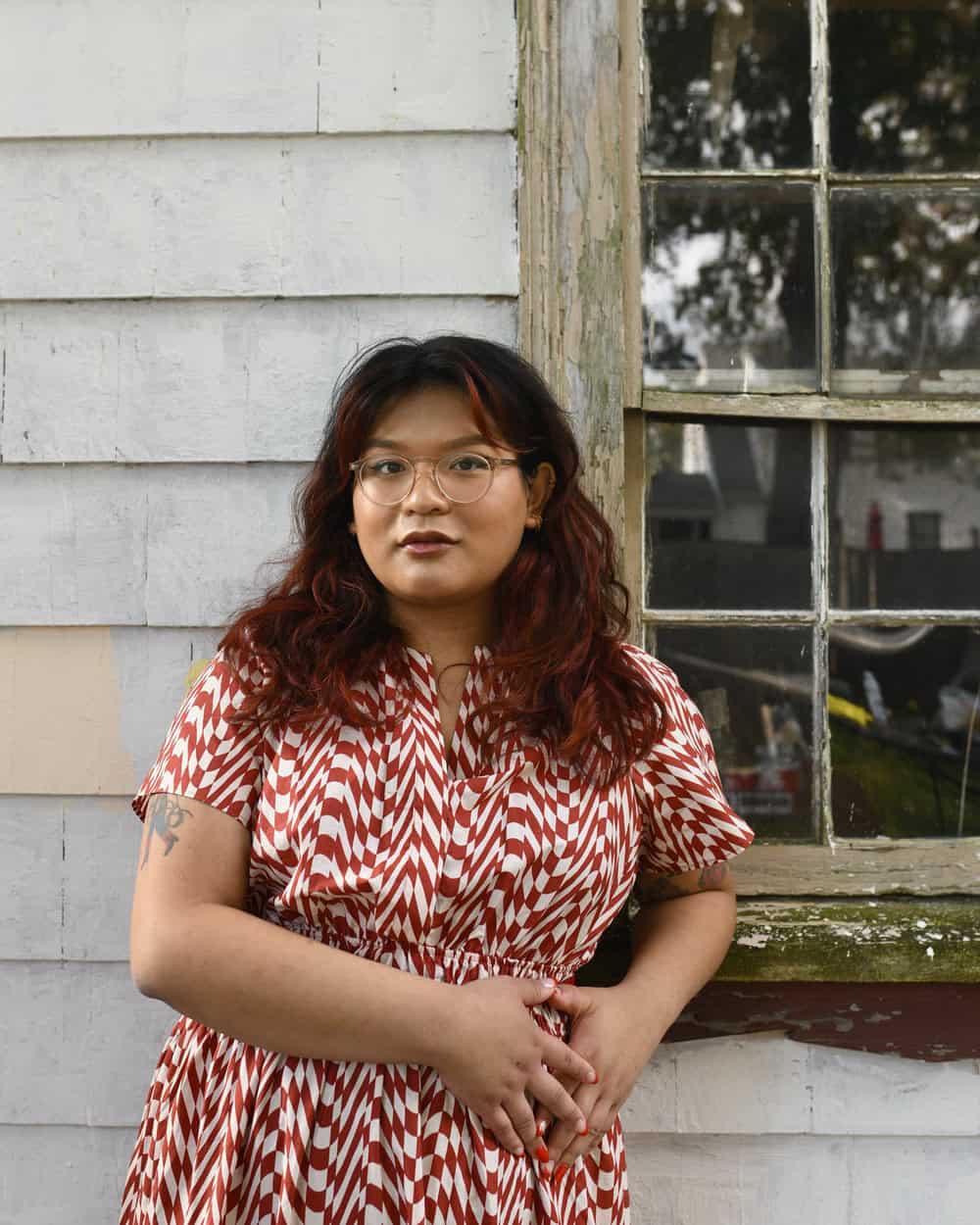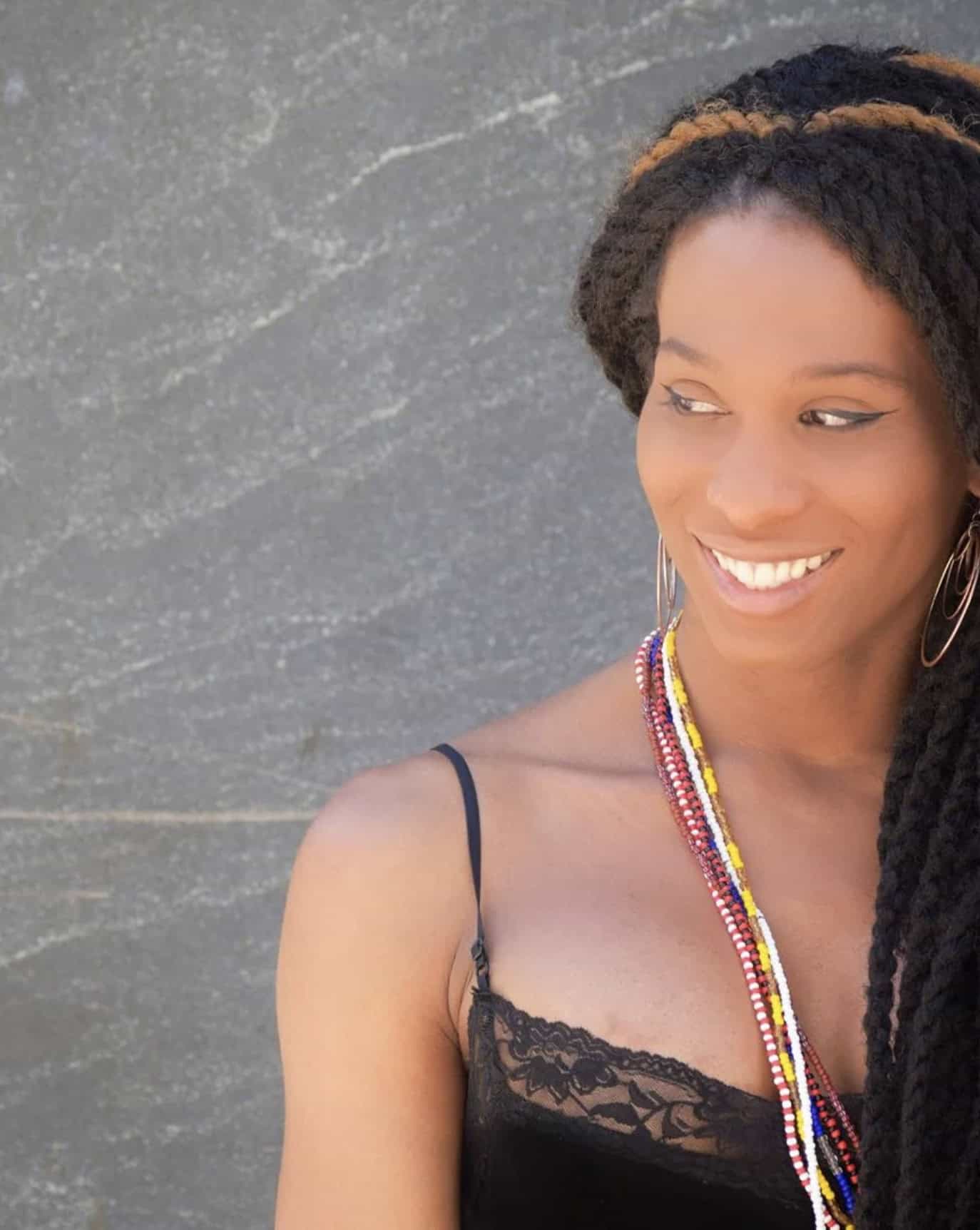
Portrait of a young trans woman writing into her notebook with pencil
Learn more about transgender poets to support during National Poetry Month and beyond. Explore trans poet resources.
By Daniela “Dani” Capistrano and Zarina Crockett for TransLash Media
National Poetry Month is the perfect time to explore our trans-affirming guide to transgender literary pioneers and innovators! Bookmark this page; Team TransLash will make updates to this resource annually.
What is National Poetry Month?

National Poetry Month is observed every April in the United States and was inaugurated by the Academy of American Poets in 1996. It stands as the largest literary celebration in the world, with the aim of highlighting the legacy and achievements of poets, encouraging the reading and writing of poetry, and fostering the placement of poetry at the center of our cultural life.
Transgender Poets: Trancestors
Trans people have always been here. Let this guide serve as a starting point for readers to discover and appreciate the depth and diversity of transgender poetry. Here are just a few deceased trans poets and the stories of their lives from the 19th century to present:
Count Sándor Vay (1859 – 1918)

Count Sándor Vay was a trans Hungarian poet and journalist who subverted societal norms to express his true identity. Richard von Krafft-Ebing documented Sandor’s story in his book Psychopathia Sexualis. Vay passed in most circles as a cisgender man quite convincingly; one of the greatest Hungarian prose writers of the 20th century, Gyula Krúdy, wrote that Vay could have fooled even the madam from the Mark Twain novels.
Vay’s gender journey began with a lie that became a truth. Sandor’s father, Count Ladislas Vay, needed a male heir in order to be able to pass on his title and estate. When Sandor was born, his mother the Countess was informed that she hadn’t obtained the male she had hoped for, but to please her husband she decided to pretend her Sandor was a boy after all. Sandor was given an education suitable for a noble boy and his own father never suspected the deception of the Countess until Sandor was 14.
The Count and Countess tried to make Sandor become a girl named Sarolta, but he rebelled. He knew he was a man and asked to be able to join the army or to go to university, but his father refused. At the age of 16, Vay began publishing poems under the name of Sarolta Vay in the Vasárnapi Ujság (Sunday News).
When Sandor was 21, he was no longer under the control of his parents, so he dressed in smart and fashionable men’s clothes and traveled around Europe. By 1880, Vay lived entirely as a man, engaging in typical “male” behavior such as drinking, duels, and travel.
Vay worked as a male journalist both before and after the sensational trial for his marriage to a woman in 1889. While he was detained after an arrest, it was discovered that Vay had forged documents and that “biologically” he was “female.” It was decided that Sandor had “hereditary taint.” As a result, the experts of that time decided that the fraud he had committed was because of his “condition” and “mental illness.” The court released him.
Despite the controversy, in 1908 a street in his home town was named Count Sándor Vay in his honor. Between 1900 and 1910, Vay compiled over 400 works and published them in 15 volumes as Gróf Vay Sándor munkái (The Works of Count Sándor Vay). But after 1910, newspaper and book publishers were reluctant to publish Vay’s works. He moved to Switzerland and wrote stories which were published in the Sunday edition of Pesti Hírlap.
In March 1918, suffering from pneumonia, Vay died of pleurisy. Obituaries in Hungary lamented his passing and called him “Hungary’s George Sand,” emphasizing the loss his death would be to Hungarian literature.
Vay’s work and life story remain an important part of Hungary’s literary and cultural heritage, providing early insights into the complexities of gender identity.
Ovida Delect (1926 – 1996)

A French poet, communist, and resistance fighter during World War II, Ovida Delect was a trans woman who used her literary talent to articulate her experiences. She significantly contributed to the visibility of trans women in French literature and film. Additionally, Delect identified similarities between her own experience and that of Christine Jorgensen.
Ovida starred in the documentary “Call Me Madame,” which brought the experiences of trans women into the wider canon of women in French cinema.
Anderson Bigode Herzer (1962 – 1982)

A Brazilian poet and writer, Anderson Bigode Herzer was a young transgender man who died tragically by suicide at the age of 20.
Anderson was 4 years old when his father was killed. His mother, a sex worker at the time, was unable to take care of him, making him a ward of the state until he was 14. Herzer was sent to Fundação Estadual para o Bem Estar do Menor (FEBEM), a correctional facility for delinquent youth, though he had committed no crimes.
While at FEBEM, which was often compared to the concentration camps in Nazi Germany, Anderson discovered he was transgender and adopted the name Anderson Bigode Herzer (Anderson being a common male first name in Brazil, and bigode a nickname meaning mustache) and remained under the State’s care until he was 17. Anderson wrote about his experiences, which included poetry about his gender, his imprisonment, and the hardships he’d been dealt. He published his work as A queda para o alto (descending upwards) shortly before his release from FEBEM at 17.
Upon his release, Eduardo Suplicy, a renowned member of parliament (deputado in Portuguese), touched by Herzer’s poems and difficult life, hired Anderson as an intern in his office. In spite of the support he received, Herzer’s traumatic childhood and experience at FEBEM resulted in him jumping off the Viaduto 23 de Maio, a viaduct located in the downtown area of São Paulo.

“The only problem is unsolved death.
Anderson Bigode Herzer
I have felt many times on the edge, but always at the last minute,
there was a way out or a helping hand to assist me in a way to the light.”
The film “Vera” by Sérgio Toledo is based on Herzer’s life. Herzer’s poetry continues to inspire discussions around gender, identity, and societal acceptance of trans youth.
kari edwards (1954 – 2006)

kari edwards was a Bay-area based artist, gender activist and poet born in 1954, Illinois. Hir* work resists containers of binary gender, genre and disciplines; For 12 years edwards taught sculpture and performance art at Denver University, after which she went on to receive an MA in psychology and an MFA in writing from the Naropa Institute in Boulder, Colorado.
Together with her partner Frances Blau, edwards moved to San Francisco, where she became active in the local poetry and transgender communities, working at homeless shelters and advocating for LGBTQIA+ rights. edwards also launched a blog, Transdada, and remained committed to social justice and queer activism throughout hir entire life.
In a 2003 Rain Taxi interview with akilah oliver, edwards remarked: “for me language becomes a tool that can be used and then destroyed or reused again in a different way.” Describing her dyslexia, edwards added: “I may be fortunate or not to be dyslexic, so I have the ability to look at an object and lose its name; for a moment I’m in the presence of that object. I guess the same goes for gendered individuals […] it could be that they are a male or female but I never try to fix them to position.”
edwards received a New Langton Arts Bay Area Award in literature, the Small Press Traffic’s book of the year award and a posthumous Lambda Literary Award. edwards’ work can also be found in Scribner’s The Best American Poetry (2004), Bay Poetics (Faux Press, 2006), Civil Disobediences: Poetics and Politics in Action (Coffee House Press, 2004), Bisexuality and Transgenderism: InterSEXions of the Others (Haworth Press, 2004), and elsewhere.
edwards died of a pulmonary embolism at 52 in 2006.
No Gender: Reflections on the Life & Work of kari edwards edited by E. Tracy Grinnell, erica kaufman, Julian Talamantez Brolaski can be purchased here. Accessing a kari edwards teaching guide here.
Transgender Poets: Give Them Their Flowers
Through exploring the rich contributions of emerging transgender poets during National Poetry Month, we not only honor their individual talents, but also recognize the collective power of poetry to foster empathy, awareness, and change.
Chrysanthemum

CHRYSANTHEMUM (pronouns: she/her) is a poet, performance artist and public historian who serves as Co-Director of the Providence Poetry Slam. She is the winner of a 2023 Ruth Lilly & Dorothy Sargent Rosenberg Fellowship from the Poetry Foundation, a Kundiman Fellow, and was awarded the 2023 Justin Chin Memorial Scholarship from Lambda Literary.
In 2016, Chrysanthemum became the first transgender woman to be a finalist at Women of the World Poetry Slam.
Through a MacColl Johnson Fellowship awarded by the Rhode Island Foundation, she organized the Vanishing Point Writing Retreat to connect Asian poets in diaspora through collaborative, peer-led instruction. Chrysanthemum modeled this after Rachel McKibbens’ Pink Door Writing Retreat, of which she is an alumna.
With long-time collaborator Justice Ameer, with whom she served as Artist-in-Residence at Williams College, she co-wrote & co-produced ANTHEM at the American Repertory Theater’s OBERON, weaving poetry, music, song & media arts into a lyrical performance exploring the lasting legacies of vanguards on the contours of race, sex & gender. “Moments of rare joy and celebrations of survival are part of the premise,” wrote WBUR about the debut show.
Follow Chrysanthemum on IG: @chrysanthemvm_
Justice Ameer

Justice Ameer (pronoun: Xe), a Black trans woman poet based in Providence, Rhode Island, is known for xyr powerful voice and dynamic performances. As a Pink Door fellow and co-champion of the inaugural Feminine Empowerment Movement (FEM) Slam, Ameer’s work explores themes of identity, justice, and the trans experience, making significant contributions to the poetry community and beyond.
Explore some of xyr writing:
when white supremacy kills me, Split This Rock. (June 2020)
t for t, Split This Rock. (February 2020)
body without the “d”, Poetry Foundation Magazine. (November 2018)
(After God Herself), Poetry Foundation Magazine. (August 2018)
Night Divine, “Pulsamos: LGBTQ Poets Respond to the Pulse Night Club Shooting,” Glass: A Journal of Poetry. (August 2016)
Justice Ameer’s recognition as a prominent figure in the poetry slam scene underscores the importance of inclusive and diverse narratives in the arts.
Follow Justice Ameer on Instagram: @thejusticeameer
KB Brookins

KB Brookins (pronouns: they/them/theirs) is a Black queer & trans cultural worker, artist, and writer from Texas, celebrated for their poignant and transformative literary work. They are the author of “How to Identify Yourself with a Wound” (Kallisto Gaia Press, 2022), which won the Saguaro Poetry Prize and was named an American Library Association Stonewall Honor Book in Literature.
Their debut full-length poetry collection Freedom House was called “urgent and timely” by Vogue, and named a Best Book of 2023 by Autostraddle, Texas Observer, Chicago Review of Books, and The Poetry Question.
Brookins has emerged as a vital voice in contemporary poetry. Their recognition as a 2023 National Endowment for the Arts Creative Writing Fellow further validates their significant impact on the literary landscape.
Follow KB Brookins on Instagram: @earthtokb
Lee Mokobe

Lee Mokobe (pronouns: they/them) is an award-winning slam poet, content creator and creative director. Mokobe is a TED Fellow and Adobe Creativity Scholar. They are also a trained traditional healer known as a sangoma.
Lee is the founder of Vocal Revolutionaries, a non-profit organization focused on empowering creative African youth using digital art. Lee is also an LGBTQ activist specifically referencing their experience as a black transgender immigrant in South Africa and America. Through queer advocacy, they have been published several times including alongside Barack Obama and Harvey Milk in Loud and Proud (LGBTQ speeches that inspired the world). Their works and art are taught as part of university and college curriculum all across the world.
Mokobe’s poetry and activism have made significant contributions to the visibility and understanding of transgender experiences.
Lee’s powerful performances and creative projects underscore the transformative potential of poetry to advocate for social change and personal liberation.
Follow Lee Mokobe on Instagram: @leemokobe
Lady Dane Figueroa Edidi

Dubbed the Ancient Jazz Priestess of Mother Africa, Lady Dane Figueroa Edidi (she/her) is a Nigerian, Cuban, Indigenous, American performance artist, author, teacher, choreographer, priestess, speech writer, playwright, writing coach, advocate, healer, a founding member of Force Collision, and a two-time Helen Hayes Award Nominee.
Edidi is the also founder of The Inanna D Initiatives, which curates, produces, and cultivates events and initiatives designed to center and celebrate the work of TGNC Artists of Color.
Considered one of the most prolific trans artists of our time, Edidi is the first Black trans woman to be nominated for a Helen Hayes Award. In 2015, she received an Emerging Leader Award for her work with the DC Trans Community and is the GLBT History Project’s 2018 recipient of the Mujeres en el Movimiento Arts Award. She has also costarred as Patra in the web series King Ester.
In The Politics of Tears (2024), Edidi has written poems exploring the role of war, the weaponizing of identity, the liberation of humanity, the comfort of community and what truly needs to happen for us all to get free. A poetic mirror, the work ask us, who do we believe is worthy of the tears we shed? Who do we ultimately want to be? And, what present do we want to co-create?
Follow Lady Dane Figueroa Edidi on Instagram: @ladydanefe
More Trans Poets and Resources
Trace Peterson (she/her) is a trans woman poet critic. Her work combines trans studies and queer studies with writing studies and literary history of 20th-21st century poetry and poetics.
Joshua Jennifer Espinoza (she/her) is a trans woman poet. Her work has been featured in Poetry Magazine, The Paris Review, the American Poetry Review, The Rumpus, Poem-a-day @poets.org, and elsewhere. She is the author of I’m Alive / It Hurts / I Love It (Big Lucks 2019) and THERE SHOULD BE FLOWERS (The Accomplices 2016). You can pre order I Don’t Want to Be Understood (August 2024) here.
H. Melt (they/them) is a poet, artist, and educator whose work celebrates trans people, history, and culture. They are the author of There Are Trans People Here and editor of Subject to Change: Trans Poetry & Conversation.
ALOK (they/them) is an internationally acclaimed poet, comedian, public speaker, and actor.
Kay Ulanday Barrett (they/he) is a poet, essayist, cultural strategist, and A+ napper. Read one of their poems in the Pride Month 2021 edition of TransLash Zine.
Miss Mojo (she/her) shared a powerful poem during TransLash’s TDOR event in 2019.
This list of poetry by transgender and genderqueer poets was created by librarians at The Seattle Public Library.
12 queer and trans poets to read for National Poetry Month
Transgender poets category on Wikipedia
Transgender poets thread on Reddit
Trans* and Non-binary poetry: a resource list
Tone It Down: Poetry By A Black Trans Femme
WORTHY, a #TransBodiesTransChoices short film, visually depicts a personal poem written by artist Averi Rose, who shares the relationship she has with herself as a Black trans woman.
Did you find this resource helpful? Consider supporting TransLash today with a tax-deductible donation. Who else should we add to this guide? Let us know!